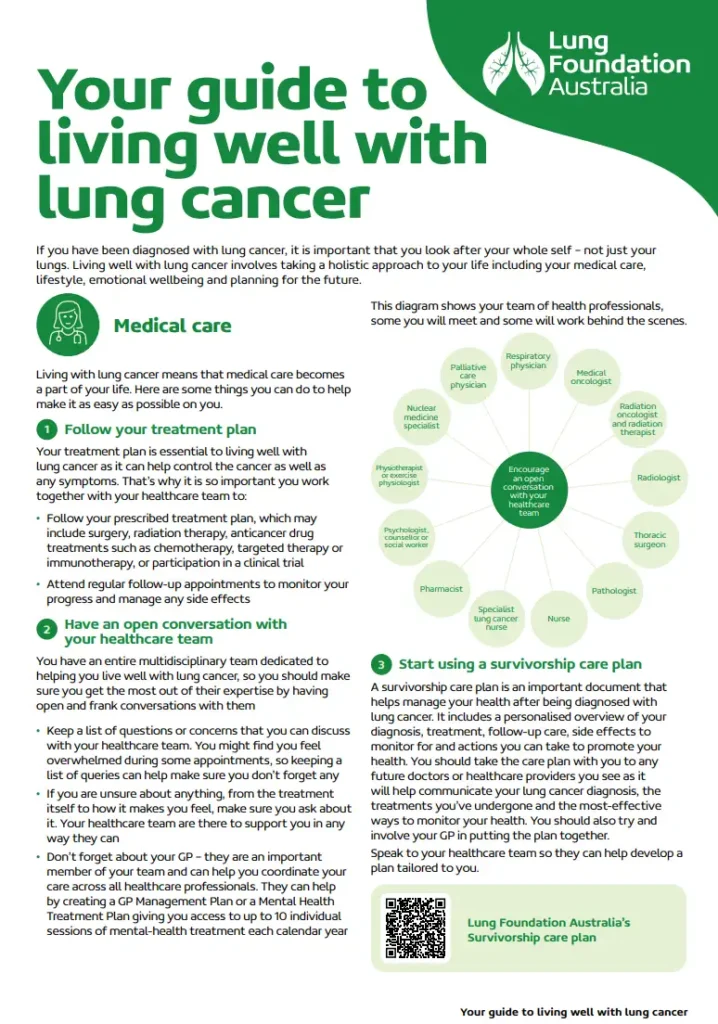Receiving a lung cancer diagnosis can be an emotionally and physically overwhelming experience. However, focusing on your overall well-being is essential for effectively managing your health during this challenging time. A holistic approach encompasses several key areas, including medical care, lifestyle modifications, emotional support, and future planning.
First and foremost, it is crucial to adhere closely to your treatment plan. Collaborate with your healthcare team to ensure you follow their recommendations, which may include various treatment options such as surgery, chemotherapy, or immunotherapy. Attending regular follow-up appointments is vital to monitor your progress and to address any side effects you may experience. Maintaining open lines of communication with your healthcare team is essential; keeping a list of questions can be an effective way to alleviate the feelings of being overwhelmed during appointments. Being informed about your condition and treatment options can empower you to make better choices regarding your health.
Additionally, consider creating a survivorship care plan. This important document should outline your diagnosis, treatment history, follow-up care, and guidelines for monitoring your health in the future. By sharing this plan with any new healthcare providers you may encounter, you ensure that you receive consistent and coordinated care. Your general practitioner (GP) plays a vital role in your healthcare team and can help manage and coordinate your overall treatment plan.
Lifestyle changes may also be necessary. Protecting your lungs should be a top priority. If you are currently smoking, consider seeking assistance to quit; it’s never too late to stop smoking, and doing so can dramatically improve your health outcomes. Be mindful of avoiding exposure to second-hand smoke and try to stay indoors during days when air quality is poor. Incorporating regular physical activity is also beneficial, as it can help enhance physical strength, reduce fatigue, and improve your overall quality of life. Always consult with your healthcare team before initiating any new exercise regimen and consider exploring programs like pulmonary rehabilitation if you require additional support.
Ultimately, maintaining a balanced and healthy diet is essential to your journey towards recovery. Prioritising nutritious foods can help your body heal and thrive. With the right strategies, support, and a focus on holistic well-being, you can navigate life with lung cancer while striving for a fulfilling and healthy life. Remember that every individual’s journey is unique; be gentle with yourself and take the time to discover what feels right for you. Your health and happiness are important, and with the right mindset and support, you can face the challenges ahead with resilience and confidence.
Was this page helpful?
Good job! Please give your positive feedback
How could we improve this post? Please Help us.
